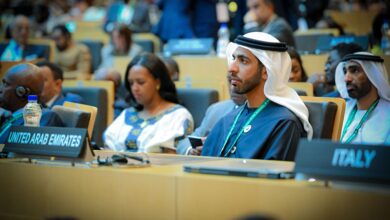Kuwait upgraded to Tier 2 in US ‘Trafficking in Persons’ report following strong anti-trafficking reforms

- The reclassification reflects Kuwait’s determination to meet international standards in combating human trafficking and positions the country as a regional leader in protection and prevention measures. It also signals the state’s readiness to continue reform, enhance victim support, and maintain momentum in aligning with global best practices.
Kuwait has achieved a notable milestone in global efforts against human trafficking, moving from the Tier 2 Watch List to Tier 2 in the US State Department’s 2025 Trafficking in Persons (TIP) Report.
The upgrade reflects international recognition of Kuwait’s tangible measures to combat trafficking and protect vulnerable populations, particularly migrant and domestic workers.
The TIP report assesses countries’ efforts to meet minimum standards for eliminating human trafficking. While Kuwait was acknowledged for significant efforts, including legal reforms and protective measures, the report also noted areas where further improvements are needed. Despite these gaps, the country’s progress has elevated its international standing and demonstrated a commitment to meeting global standards.
Key achievements highlighted include expanding victim identification through government shelters, including the opening of a new shelter for male migrant workers, increasing access to bank accounts for low-wage employees, and enforcing stricter penalties on employers who withhold wages. These steps signal a shift toward more comprehensive protection mechanisms for vulnerable labor groups.
However, the report noted several challenges. Investigations of alleged trafficking cases decreased significantly, and no prosecutions or convictions under the 2013 anti-trafficking law were recorded. Labor violations and contractual abuses were rarely treated as trafficking indicators, leaving many victims, especially male and sex trafficking victims, unidentified.
Additionally, the enforcement of domestic worker protections remained weak, and the employer-based visa system continued to increase migrant vulnerability.
The Public Prosecution, a member of the Permanent National Committee for Combating Trafficking in Persons and Migrant Smuggling, emphasized its proactive steps to strengthen national mechanisms.
Among these was the reorganization of the Capital Prosecution Office to specialize in human trafficking and migrant smuggling cases, ensuring more targeted investigations and professional handling of complex cases.
The Prosecution also issued internal circulars to standardize investigation procedures and engaged its staff in specialized training programs and international workshops. These initiatives have enhanced the efficiency and capacity of personnel, allowing for improved identification, investigation, and management of trafficking cases in line with global best practices.
Minister of Justice and Chairman of the Permanent Committee, Counselor Nasser Al-Sumait, hailed the Tier 2 upgrade as a major step forward. He highlighted reforms such as the 2024 decree-law on foreign residency, which strengthened penalties for residency-related trafficking and criminalized the non-payment of workers’ dues, alongside institutional reforms expanding shelter availability and implementing the national anti-trafficking plan through 2028.
Despite these improvements, the report stresses ongoing risks. Trafficking in Kuwait predominantly affects migrant workers from South Asia, Southeast Asia, and sub-Saharan Africa, employed in domestic work, construction, healthcare, hospitality, and other sectors. Key risks include non-payment of wages, passport confiscation, excessive work hours, and forced repayment of recruitment fees. Employer-based visas further restrict mobility and exacerbate vulnerabilities, particularly for domestic workers confined to private homes.
Prioritized recommendations include strengthening prosecution under the 2013 law, expanding male victim identification and shelter access, reforming the employer-based visa system to allow safe job changes and exit, enhancing domestic worker protections, improving inspections of recruitment agencies, expanding awareness campaigns, and ensuring victims are not penalized for acts committed under coercion.
The Public Prosecution stressed that Kuwait’s progress results from sustained legislative and executive efforts and a collaborative approach between relevant authorities. By enhancing coordination, unifying response mechanisms, and improving victim protection programs, Kuwait is aligning its national practices with international obligations.
Al-Sumait underscored that while the Tier 2 upgrade is a recognition of the reforms already implemented, it also carries responsibility for continued action. Kuwait is committed to ongoing reforms, implementing its national plan, and addressing areas identified in the TIP report to ensure that migrant workers are protected from exploitation and trafficking.
Overall, the reclassification reflects Kuwait’s determination to meet international standards in combating human trafficking and positions the country as a regional leader in protection and prevention measures. It also signals the state’s readiness to continue reform, enhance victim support, and maintain momentum in aligning with global best practices.
Follow The Times Kuwait on
X, Instagram and Facebook for the latest news updates












